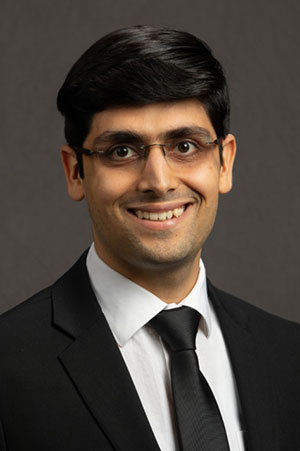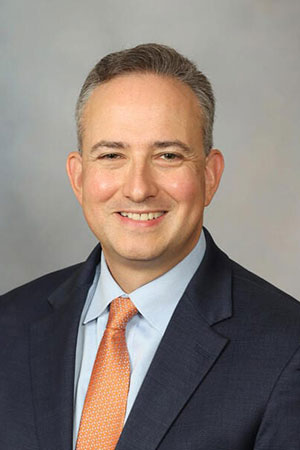The Resident Learning Journey in the Medical Intensive Care Unit
Herzog, T. L., Sawatsky, A. P., Kelm, D. J., Nelson, D. R., Park, J. G., & Niven, A. S. (2023). The Resident Learning Journey in the Medical Intensive Care Unit. ATS Scholar, ats-scholar.
Summary
The Medical Intensive Care Unit (MICU) can be one of the most enriching experiences in terms of resident learning, however, the complex and unpredictable environment of the MICU poses challenges to traditional structured and bedside teaching activities. Using thematic analysis, this qualitative study explored residents' MICU learning experience and the authors discuss the challenges of teaching internal medicine residents in the MICU. In addition to other challenges, the fast pace and high acuity of critical care practice can limit opportunities for graduated resident autonomy which is of key importance for learning. The study identified three thematic resident learning categories: learning goals and motivation, clinical engagement, and interprofessional collaboration. The researchers distinguished three learner archetypes, the novice, experiential learner, and practicing member, to describe progressive resident development within the interprofessional MICU team, the challenges they frequently encounter, and potential teaching strategies to facilitate learning.
Interview
AK: It appears from the resident narratives that novice learners’ experience in the MICU is enhanced with more patient-interaction based contributions such as family communication. What are your thoughts on ways to increase and facilitate such activities in an efficient manner?
AN: This is a great question. Regular communication with critically ill patients and their family members is so important because it builds trust and a shared understanding of the human being lying in our ICU bed. These conversations provide essential context that we need to ensure that our patients’ best interests are at the center of every medical decision we make. Unfortunately, the demands and unpredictable nature of our critical care practice too often create barriers to regular patient and family conversation….which make conversations about goals of care and end of life even harder when the clinical course is not going well.
My colleagues Drs. Sumera Ahmad and Luda Karnatovskaia used the results of this study to propose a few simple changes to our daily rounding routine. We try to round at the bedside, and if infection control precautions prevent this, we invite family members who are present to join us for the rounding discussion. Our rounding format requires the intern to briefly summarize the key elements of the plan for the day in layman’s terms for the family at the end of the presentation. If family members have questions, that intern and the supervising attending stay behind for a few minutes to talk as the team continues, providing the opportunity for the intern to continue to lead the conversation and their attending to provide direct observation, modeling and immediate feedback. If the family is not at the bedside, we encourage our fellows to ask the question “Have you talked to the family today?” at the end of every presentation. If the intern’s answer is no, we encourage the follow on question “How can I help?” This offers gentle reinforcement of the importance of this daily task, and the opportunity for both supervision and graduated autonomy depending on nature of the medical issues involved and the comfort level and experience of the learner.
AK: In addition to the archetypes described in the article, what are some other ways to assess resident development throughout their training?
AN: This is a really hard question to answer briefly! Dr. Louis Pangaro was the third-year medicine clerkship director at the Uniformed Services University when I was a resident at Walter Reed Army Medical Center, and introduced me to the Reporter Interpreter Manager Educator (RIME) framework. Although traditionally the RIME model has been used for medical student assessment, I find it is still an effective tool for use with internal medicine residents as they grow and develop in the relatively unfamiliar environment of the intensive care unit and the spectrum of conditions that we care for compared to other clinical internal medicine experiences. Most interns struggle to identify and report the relevant clinical information associated with common critical care syndromes when they start in the ICU, but over time develop the skills to deliver clear, well organized presentations and differential diagnoses for common ICU problems. As residents spend more time in the ICU during subsequent rotations they develop increasing facility with their interpreter (expanded differential diagnosis), manager (development of a diagnostic and management plan), and educator (ability to teach the evidence why we do the things we do, and mentor junior colleagues) skills. I this framework regularly to discuss my expectations with my team, anchor my observations and assessments, and offer next steps during feedback.
AK: I strongly agree that social competence in the MICU plays a vital role in resident learning. What are some of the challenges in achieving that and how to overcome them?
AN: We used Wenger’s social learning theory of the community of practice as a sensitizing framework for our thematic analysis, which we felt fit well with the ICU environment. Interprofessional teams share the common goal of providing the best possible care to their critically ill patients. They coordinate the diverse talents of their team members to effectively deliver complex care using well-delineated admission and rounding routines, protocol-based care pathways supported by electronic health record order sets, and clearly defined roles and responsibilities. Residents have a steep learning curve when they join the ICU – because they have to rapidly learn not only our workflows, protocols, and ordersets, but also the diverse roles and responsibilities of their highly skilled interprofessional colleagues and how best to collaborate with them. We can teach residents our workflow, processes, and order sets (and the evidence behind their use) – but we have a lot to learn about the best methods to teach interprofessional teamwork and collaboration in the ICU setting. We proposed that a deliberate, structured approach to empower interprofessional team members within the MICU educational environment to guide and teach residents best approaches to interprofessional teamwork may be one solution to overcome the latter challenges. We are currently working on a follow on study exploring interprofessional team member perspectives on resident education to better understand this complex problem and clarify approaches that may offer promise in this area.
AK: This article highlights the importance of team camaraderie, collaboration, support and trust to foster a strong educational environment. What advice would you give to residents and fellows who play an integral role in peer learning.
AN: One of the reasons that I enjoy practicing in the ICU is because I have the opportunity to work with a highly skilled team of professionals, each of whom bring a different set of talents and perspectives that enable us to deliver complex, coordinated care to the sickest patients in the hospital. Residents are an integral part of our team, and their fresh perspectives and questions constantly challenge the status quo within our community of practice and make us better – which in turn means better care for our patients. The best way to foster interprofessional learning through these team interactions is to check your ego at the door of the ICU, treat other team members with the same professionalism and respect with which you would like them to treat you, and be thoughtful and curious as you work with them to deliver the best possible care of your patients.
AK: How would you modify your approach towards resident teaching in the ICU setting based on the findings of this article?
AN: Dr. Diana Kelm and I spent an incredible amount of time and energy developing an extensive online curriculum and detailed delivery plan that included asynchronous learning reinforced by case based, small group discussions with our residents teams when we were MICU rotation coordinators. Despite all our efforts, implementation and use of our program was limited by faculty and residents alike - and spurred this project to better understand how residents approach learning in the ICU. Based on our findings we are working on a more detailed orientation for interns on the ICU workflow, protocol, and procedures, and looking for ways to leverage our digital EHR interface to improve their efficiency. Our findings also offer opportunities for more deliberate assignment of responsibility (i.e. family communication, initial patient assessment and resuscitation, team leadership opportunities), which combined with direct observation and feedback may lead to more rapid resident entrustment and autonomy to perform a broader array of clinical activities. This, more deliberate approach to resident development – especially when performed collaboratively with other interprofessional team members – we suspect will significantly accelerate the resident journey to social competence. Now we face the important work of putting these hypotheses into practice and testing them.
Blog Post Author

Akshay Kohli is a pulmonary critical care fellow at Southern Illinois University. After graduating from Maulana Azad Medical College in India, he moved to DC for his internal medicine residency at Washington Hospital Center/Georgetown University. During residency he found his love for teaching, and ever since has enjoyed passing on his knowledge to his peers during both bedside teaching and formal lectures. In addition to his passion for pulmonary procedures, his academic interests include ARDS, right ventricular pathophysiology in critical care (especially in pulmonary embolism), and pulmonary hypertension. When not in the hospital, Akshay can be found training for half-marathons; he attempts to run at least three marathons a year. He also enjoys hiking, road trips, local breweries, and trying out new eateries (when not mastering the art of cooking through HelloFresh).
Twitter: @kohli_aks
Article Author

Dr. Alexander S. Niven is a Consultant in the Division of Pulmonary and Critical Care at Mayo Clinic and Professor of Medicine in the Mayo Clinic College of Medicine and Science. He is the Director of the Academy for Educational Excellence, and also serves as the Education Chair for both the Division and the Critical Care Independent Multispecialty Practice. Dr. Niven is the co-director of the Checklist for Early Recognition and Treatment of Acute Illness and Injury (CERTAIN), a global checklist-based program that improves processes of care and patient outcomes in the critically ill. His research interests include the study of optimal dissemination and implementation strategies to enhance individual and team performance in the intensive care unit.
Twitter: @niven_alex



